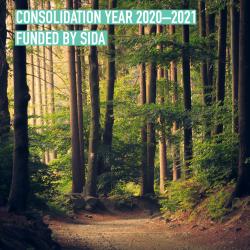In a paper just published in Nature Climate Change, a group of social scientists (including me) from around the world with expertise in urban climate/environmental change issues, takes issue with the unduly narrow and socio-technical perspective adopted in the declaration arising from the CitiesIPCC Cities & Climate Change Science Conference in Edmonton, Canada, earlier this year.
We recognise that the Sustainable Development Goals and CitiesIPCC offer an unprecedented opportunity for urban transformation, but bold, integrated action to address the constraints imposed by economic, cultural and political dynamics is needed to move beyond a narrow, technocentric view.
We acknowledge that the IPCC has begun to move in a positive direction by endorsing the need for a transformative research agenda on cities and climate change in the form of the IPCC Cities and Climate Change initiative (CitiesIPCC). This represents a most welcome collaboration between the research community and practitioners – akin to the transdisciplinary co-production methodologies that we champion in Mistra Urban Futures – and has great potential to create a transformative agenda. It recognizes the need for research and synthesis across physical, financial and social sectors to catalyse transformation, but although growing momentum exists to unleash the transformative potential of urban action, current practice is able to address root causes and connections among climate change, inequality in emissions, uneven development and vulnerability to only a limited extent.
Hence, we argue that pursuing a transformative urban agenda for climate change will require challenging innovations that take us beyond the current relatively technocentric view of research and synthesis. The approach we offer comprises five key elements, namely understanding political economy and the power to act; the importance of implementing multilevel governance; the ability to break out of the lock-in of socio-material path dependency; understanding and acting through the appropriate scales of processes, impact and actions; and engaging different stakeholder groups to realise the transformative potential.
For further information, please contact David Simon, Director of Mistra Urban Futures
The article, Urban transformative potential in a changing climate, is unfortunately not open access - but it can be read online through this ReadCube link. For academic users, the article can be found here.








